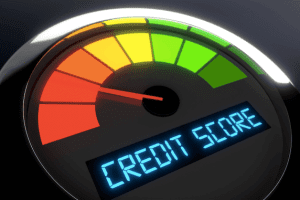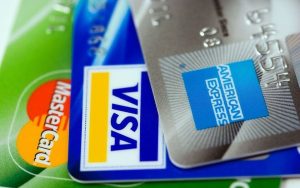In a world where credit card usage is very common, the choice not to use one might raise eyebrows. However, the decision to abstain from credit card usage is a personal one, shaped by individual financial philosophies and goals. In this article, Dollar Hand will explore both the advantages and potential drawbacks of not using a credit card, debunking common myths to provide a nuanced perspective.
What Are The Advantages Of Not Using A Credit Card?
1) Avoiding Debt
One of the primary advantages of not using a credit card is avoiding the temptation of accumulating debt. Credit cards can lead to overspending, and without proper management, individuals may find themselves in a cycle of debt with high interest rates.
2) Simplified Finances
Without credit cards, finances can be simpler to manage. Debit cards and cash transactions provide a clear, real time reflection of available funds, eliminating the need to track credit card statements and potential interest charges.
3) Preventing Impulse Purchases
Credit cards can foster impulsive buying behavior. By relying on alternative payment methods, individuals may be more intentional in their spending, focusing on needs rather than succumbing to the allure of instant gratification.
4) Building a Cash Based Lifestyle
Opting for cash or debit transactions encourages a cash based lifestyle, fostering budgeting skills and financial discipline. This approach can lead to a better understanding of one’s financial habits and priorities.
5) Credit Score Independence
Contrary to common belief, it is possible to have a good credit score without actively using credit cards. Regular payments on loans, rent and other financial obligations contribute positively to credit history.

What Are Some Common Myths Debunked?
1) You Need Credit Cards to Build Credit
While responsible credit card usage can contribute to building credit, it is not the only way. On time payments for loans, rent and other financial obligations also play a significant role in establishing a positive credit history.
2) Credit Cards are Necessary for Emergencies
While having access to credit can provide a financial safety net, it is not the only option. Building an emergency fund in a savings account can be an effective strategy for handling unexpected expenses without relying on credit cards.
3) You Might Miss Out on Rewards
While credit card rewards can be enticing, they often come with the risk of overspending and accruing interest. Choosing not to use a credit card does not necessarily mean missing out; alternative reward programs, like cashback on debit card transactions, exist.
4) Credit Cards are Safer for Online Purchases
Some debit cards and secure online payment platforms offer comparable safety measures for online transactions. Additionally, not relying solely on credit cards can mitigate the risk of identity theft and unauthorized charges.

Is It Bad To Not Use A Credit Card?
The potential drawbacks of not using a credit card are summarized in the table below:
| Limited Credit History: | Not using credit cards may result in a limited credit history. While this does not necessarily translate to a low credit score, it might make it more challenging to qualify for certain financial products, such as a mortgage, without an extensive credit history. |
| Foregoing Potential Benefits: | Responsible credit card usage can offer benefits such as cashback, rewards and travel perks. Choosing not to use a credit card means forgoing these potential advantages, which may be valuable depending on individual spending habits and financial goals. |
| Carrying Cash: | Depending solely on cash transactions can be inconvenient in a digital age. It may require additional planning, and there are security risks associated with carrying large amounts of cash. |
Final Thoughts
Ultimately, the decision not to use a credit card is a personal one, influenced by individual financial philosophies and priorities. While there are advantages to avoiding potential debt and simplifying finances, it is essential to consider the potential drawbacks, such as a limited credit history and foregone benefits.
Finding the right balance between responsible credit card usage and alternative payment methods is key. Whether opting for a cash based lifestyle or strategically using credit cards for specific benefits, individuals should make choices aligned with their financial goals and values.
Was this article helpful?
Justine is a full-time writer with lots of expertise and a wealth of experience in the financial world. In particular, she specializes in household income and consumer finance across the United States. Follow her articles for useful advice and top tips, guides on how to save money and lots more.
